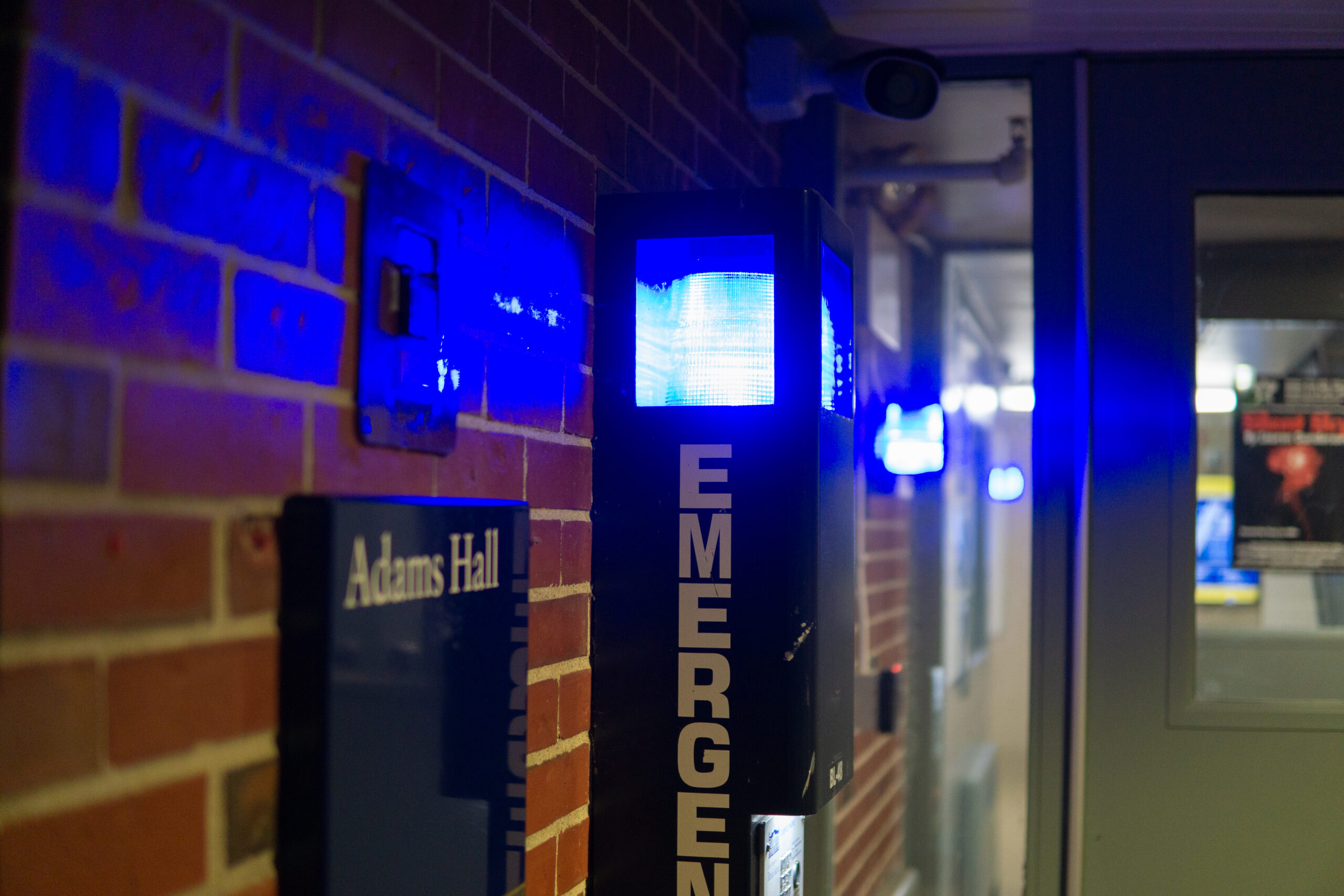Student Senate performs check up on campus emergency phone systems. PHOTO CREDIT: James Singer
Last Thursday night, the University of Rhode Island’s Student Senate checked the functionality of the emergency phones on campus with their Blue Light Walk.
The Blue Light Walk happens both semesters of the academic year to make sure that the blue light phones, the emergency phones scattered throughout campus, are functioning properly for students who are lost or in danger.
According to Senate Campus Affairs Chair Emily Gamache, who organized the event, participants tested 25 of the 90 blue lights on campus. She said that approximately seven of the 25 lights were working incorrectly. Some of the issues included the speaker’s response time on the lights being too long, the lights not blinking or the blue light not being on at all.
Gamache said that there was a delay though the speakers when audio would be transmitted to the server and the public safety official on the other end of the call.
The blue light system is designed in a way that students should be able to see at least one other blue light while standing at a blue light, according to Gamache. There was only one light in the Roger Williams Complex from which no other light was visible, which she said will be addressed in the future.
Gamache said that there have been more issues in some previous years. According to her, the lights were not used by the students due to fewer people being on campus during the COVID-19 lockdowns.
“The whole idea is if you’re in a situation where you are not really sure where you are on campus, there’s an ample supply of blue light bulbs that will assist you in contacting police dispatch,” said Michael Chalek, the administrative and satellite campuses commander.
During the examination of the sophomore residential area, some phones were difficult to find due to the lack of illumination, and Gamache said that the group almost walked right past these phones.
“It is important to see if all the lights are on because when they are not on we won’t see them,” she said. “We almost missed one last night because the light wasn’t working, so we would have walked right by it.”
According to Gamache, Chalek is in charge of resolving issues and overseeing the blue lights on campus. All issues and concerns were brought to him to further examine after the event. Because of this, all the Blue Light Walk tests and phone calls were recorded so he could pinpoint technical difficulties if they arose.
In addition to the Blue Light Walks, Chalek said that the URI Department of Public Safety will send out people to check on the lights sporadically throughout the year. They sent out a handful of interns two weeks in advance of the walk to see whether the phones were working properly.
When the phones are not working they do their best to repair them, according to him, but they do buy new ones if the phone is “unsavable.”
“Those blue light phones are costly,” Chalek said. “As long as they can be repaired, we will repair them.”
According to him, there are phones on the Providence Campus and Narragansett Bay Campus. These, however, are looked at separately and are not part of the Senate’s Blue Light Walk.
He said that these light walks are very important, as they are also used as a way for the Senate and campus police to see if there are other safety concerns on campus.
“If we find sidewalks or some part of roadways that are in disarray, we will also make note of that,” he said.





